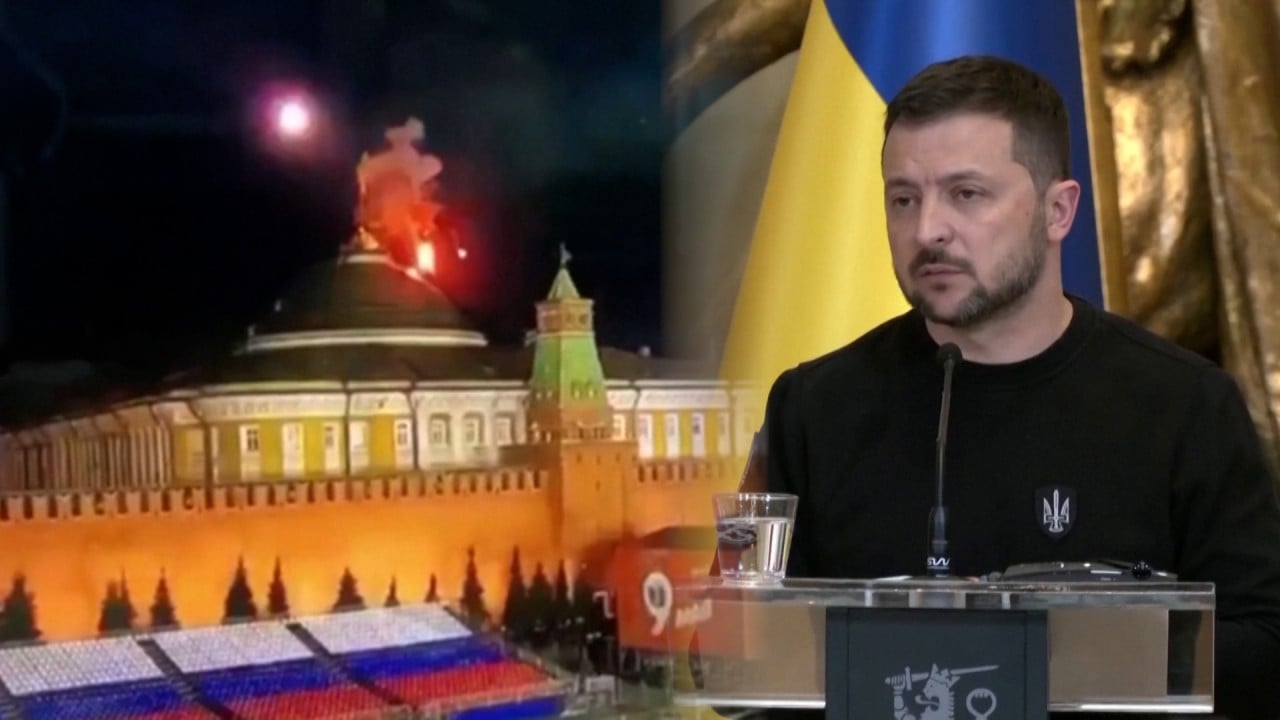
China’s Qin Gang pledges to keep Moscow close in Ukraine peace bid
- Communication and coordination to continue for ‘real contribution’ to end of conflict, foreign minister tells his Russian counterpart
- At their meeting in Goa, the two men also agreed to oppose a ‘new cold war’ in the Asia-Pacific
At their third in-person meeting since Qin’s appointment at the end of last year, the two sides also agreed to “step up communication and coordination in the Asia-Pacific to oppose a ‘new cold war’”, according to a Chinese foreign ministry statement.
The ministry did not mention Xi’s call with Zelensky, but quoted Qin’s remarks on the Russia-Ukraine conflict that China would “continue to promote peace talks and is willing to maintain communication and coordination with Russia to make a real contribution to the political settlement of the crisis”.
In response, Lavrov said Russia “is willing to maintain close communication with China in a frank and sincere manner”.
The meeting took place one day after Russia claimed it had shot down two drones over President Vladimir Putin’s Kremlin residence, in an escalation of already heightened tensions.
Moscow has called the incident a Ukrainian assassination attempt and said Russia is considering various options. Kyiv has denied the claim and suggested the attack was staged by the Russians.
Thursday’s meeting also coincided with further signs that the US is strengthening its alliances in the region – an approach that Beijing regards as a strategy to contain China – with reports of a plan to open Nato’s first liaison office in Asia.
Citing Japanese and Nato officials, Nikkei Asia said on Wednesday that the 31-country transatlantic security alliance intended to set up the office in Tokyo and conduct “periodic consultations” with Japan and other regional partners, including South Korea, Australia and New Zealand.
Beijing has long resisted what it considers interference by outside powers in its neighbourhood and Chinese foreign ministry spokeswoman Mao Ning called for “high vigilance” towards “Nato’s continued eastward foray in to the Asia-Pacific”.
Speaking on Wednesday, Mao warned that Nato’s action would “undermine regional peace and stability and stoke camp confrontation”.
At their meeting in Goa, Qin and Lavrov also reaffirmed China-Russia cooperation through multilateral platforms such as the SCO, G20, the UN and BRICS – the informal grouping of emerging economies Brazil, Russia, India, China and South Africa.
China’s push to broker peace talks between Russia and Ukraine remains on track, with Mao confirming on Thursday that travel plans for Li Hui, Beijing’s envoy to Ukraine “and other countries”, were unaffected by the Kremlin drone attack.
Li, a former ambassador to Russia, was appointed special envoy for Eurasian affairs in 2019. His career has focused on managing China’s relationship with the Soviet Union and its successor states.


